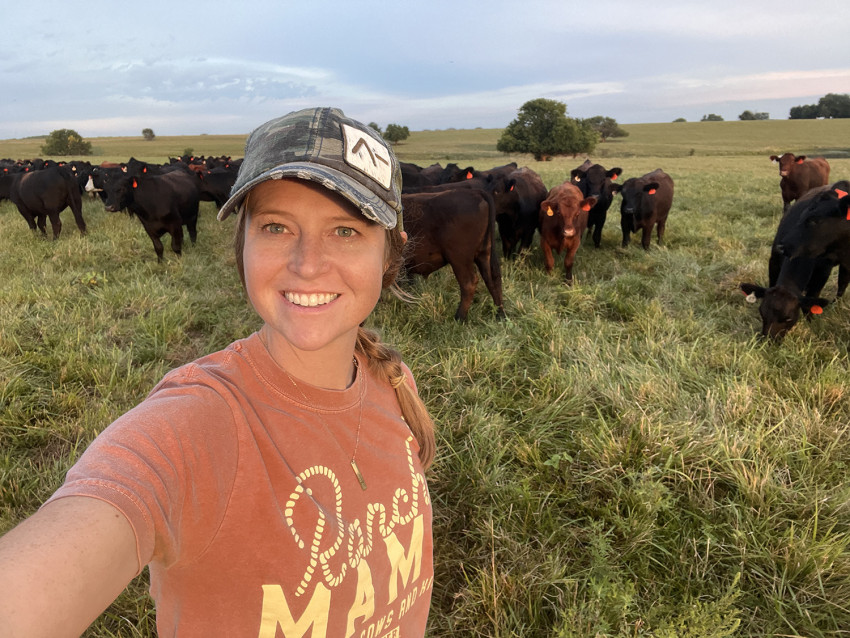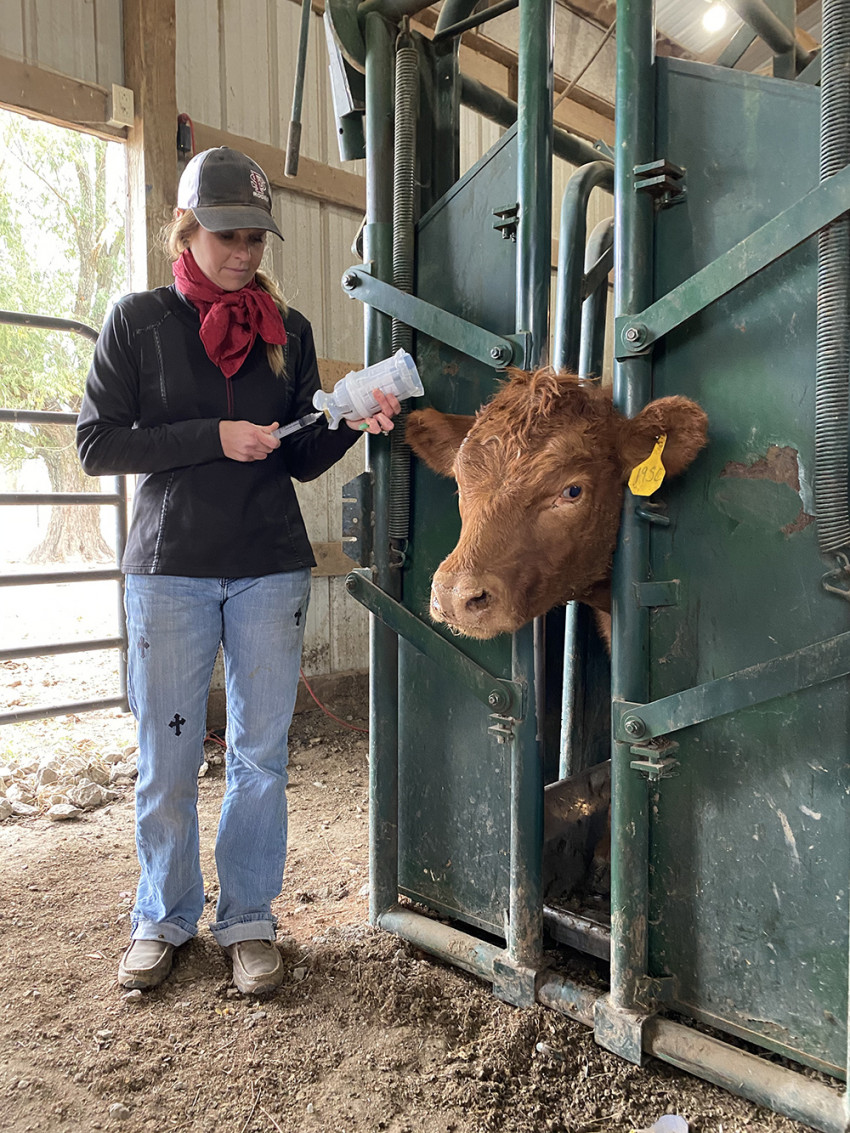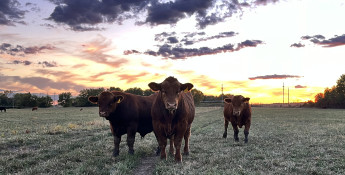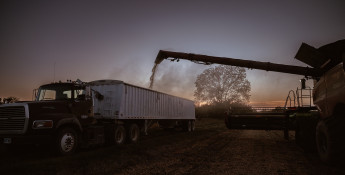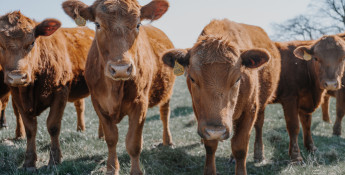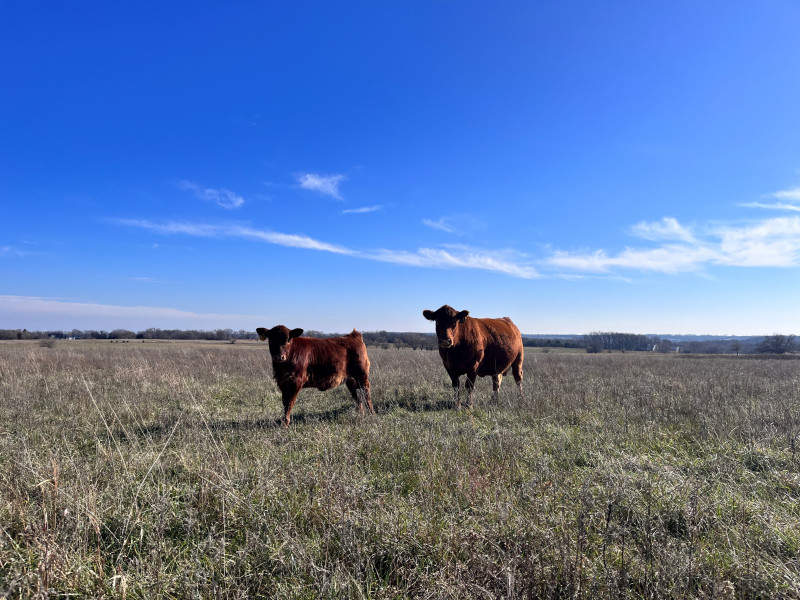By Brandi Buzzard on November 17, 2025
5 Crucial Issues on Ranchers’ Minds
From markets to animal health and agricultural policy, learn what's on the minds of Kansas ranchers
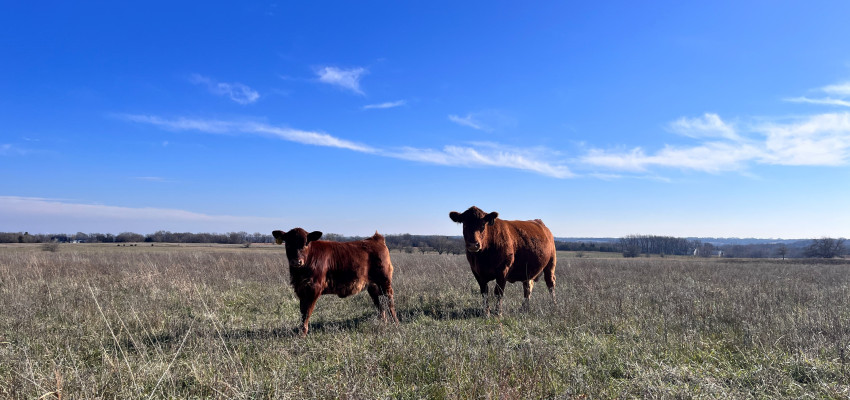
As a rancher, I have a front row seat to the complexity of the beef industry and the moving pieces that transform cattle in a pasture to steak on a plate. It’s a complicated process and right now several big issues are putting extra pressure on it, causing me a bit of anxiety, to be honest. Here’s a peek behind the curtain so you can understand what’s happening long before that steak ever hits your fine china.
1. Markets
Cattle markets have been hot recently, as a result of several factors, including drought, tight cattle supplies and animal health concerns. Add in to the mix the president’s comments about beef markets and ranchers in recent weeks, and the markets have been a roller coaster. While live cattle prices are still historically high, ranchers are a bit wary about making any long-term decisions until some leveling out occurs.
2. Animal Health
I have spoken about the New World screwworm before and, while trying not to be overly dramatic, it's a big deal. The screwworm is a parasite that can cause serious harm to livestock (all animals really) if not caught quickly. In September, it popped up near the U.S. - Mexico border, which triggered stricter import rules and new biosecurity measures. It’s a crucial issue, because keeping animals healthy is critical to maintaining a consistent, safe beef supply. On our ranch, we are extremely serious about animal welfare, as are hundreds of thousands of cattle ranchers, but threats like this add stress and uncertainty to our mental load. Hopefully, and thankfully, as we approach late fall and head into winter, colder temperatures will hinder the screwworm’s ability to travel and spread.
3. Labor Shortages
Producing food requires a sizable amount of manual labor, whether it’s processing cattle in a feedyard, harvesting produce in fields or cutting meat in a packing plant. The food chain depends on skilled labor. Unfortunately, it’s difficult finding enough skilled labor to fill these valuable positions. Meat processing plants have struggled to hire and keep workers, and when plants don’t run at full capacity, it slows everything down, which in turn can influence prices and availability. Additionally, recent immigration enforcement actions have added another layer of complexity to an already precarious situation.
4. Agricultural Policy, Trade and Tariffs
Beef and cattle are global products and are traded frequently between many countries. As I’ve touched on before, the U.S. imports cattle and lean trim to mix with our own domestic beef fat for fast food burger demands. Conversely, we export high-value beef cuts around the world. However, when policy changes such as implementing or ending tariffs, border closures or other restrictions, it can wreak havoc on U.S. markets. Sometimes those changes help ranchers, and sometimes they add more hurdles. Either way, policy decisions made in Washington, D.C., or in foreign capitals absolutely impact us here on the ranch.
5. Sustainability Progress and Pressures
I doubt there will come a day when I don’t care about managing our natural resources with future generations in mind. While we already practice rotational grazing, soil nutrient management and improved genetic selection, we are constantly looking for ways to “do more with less” and further decrease our environmental footprint via new technologies and practices. We have started investigating virtual fencing as well as ear tags that monitor grazing patterns and animal behavior to help us take the next step on this path.
At the end of the day, these moving pieces affect our business so we keep a close eye on outward pressures, just like any other small business would. Farming and ranching families like mine are doing our best to produce beef at a price shoppers can afford while keeping us in business for years to come.

